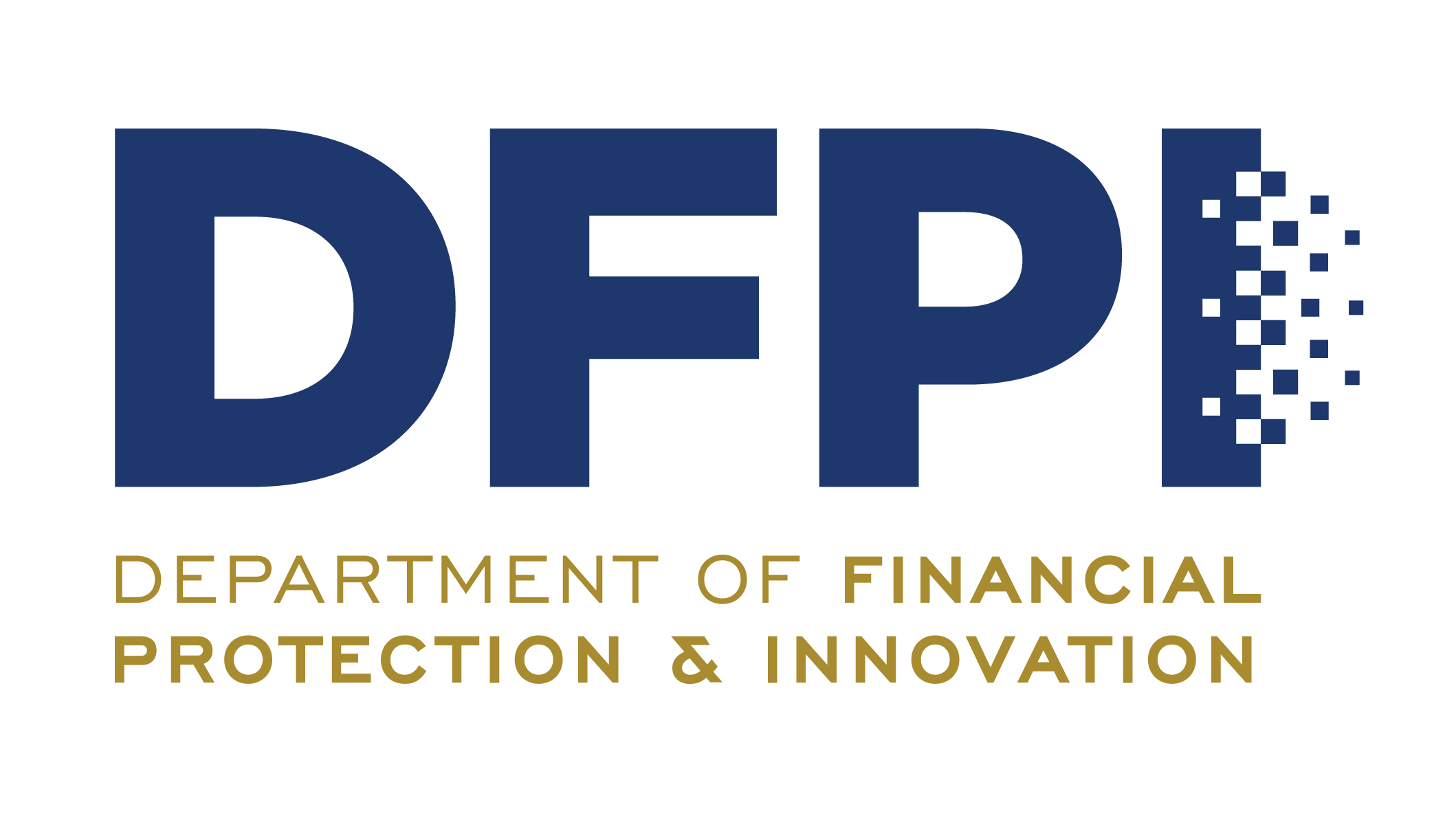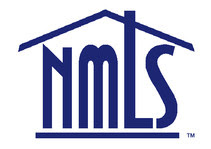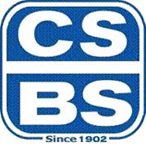Monthly Bulletin – November 2024
Volume 12, Number 4
In this issue:
- 2024-25 Assessment Rate for Banks, Foreign Banks, Trust Companies and Industrial Banks
- New Rules to Implement the CCFPL and Expand Consumer Protections
- Comments Invited on Further Registration Under the CCFPL
- DFPI Announces New Web Site
- Time to Renew
- NMLS License Renewal Began Nov. 1
- “Volt Typhoon” Cybersecurity Threat Warning for Financial Institutions
- Claims Portal Open for Money Transmitter Sigue Customers
- California Department of Public Health Hemp Ban
- Updated CSBS Nonbank Ransomware Self-Assessment Tool
- Upcoming Consumer Education Events
- Licensee Activity
About the Monthly Bulletin
CLOTHILDE V. HEWLETT
Commissioner, Department of Financial Protection and Innovation
The November 2024 Monthly Bulletin covers the month ended October 31, 2024.
It is issued pursuant to Financial Code section 376.
The Monthly Bulletin is available at no charge via e-mail.
To subscribe, go to: https://public.govdelivery.com/accounts/CADFI/subscriber/new.

2024-25 Assessment Rate for Banks, Foreign Banks, Trust Companies and Industrial Banks
The base rate for commercial banks, foreign banks, trust companies and industrial banks was set at $2.08 per $1,000 of assets, a $0.32 increase from last year’s rate of $1.76.
Invoices for the 2024-25 annual assessment will be emailed during the week of December 2. Licensees that do not receive their invoices should notify the Accounts Receivable Unit at [email protected] as soon as possible.
Invoices are payable in 30 days, with an additional week allowed for payments made via electronic funds transfers (EFT).
For questions about the calculation of an assessment, please refer to “How to Calculate Your Assessment” or email [email protected] or call 1-866-275-2677 Questions regarding assessment payment processing should be directed to the Accounts Receivable Unit at [email protected].

CCFPL and Expand Consumer Protections
Beginning in February 2025, the California Department of Financial Protection and Innovation (DFPI) will register and regulate debt settlement services, education financing, income-based advances, and student debt relief providers, a major milestone in the implementation of the California Consumer Financial Protection Law (CCFPL). With the approval of DFPI’s first registration regulations under the CCFPL by the Office of Administrative Law, the DFPI will now require providers of the following financial products and services to register and submit data to the Department:
- Debt Settlement Services
- Student Debt Relief Services
- Private Postsecondary Education Financing
- Income-Based Advances (also known as “earned wage access”)
The regulations announced on Oct. 22 require formal supervision and data reporting from four industries not previously registered with the DFPI, which will allow for greater insight into emerging trends and potential risks to consumers.
Financial service providers covered by the new regulations must file an application to register by February 15, 2025, to continue operating legally in the state. More information can be found here. Registration will provide valuable data and insights to help inform changes to consumer protection laws and regulations in the future.

Comments Invited on Further Registration Under the CCFPL
The CCFPL protects consumers from unfair, deceptive, or abusive practices committed by providers of financial services or products. Through regulation package PRO 01-21, the DFPI established new registration and reporting requirements for four previously unregistered financial products and services in California: (1) debt settlement services, (2) student debt relief services, (3) private postsecondary education financing, and (4) income-based advances, including “earned wage access” products.
In furtherance of the CCFPL’s purpose of protecting consumers of financial services and products, the DFPI is seeking input from interested parties on whether consumers would be served by additional industries being subject to registration and reporting requirements under the CCFPL. The invitation, including details on how to submit comments, is available here. Comments are due by Dec. 12, 2024.

DFPI Announces New Web Site
On Nov. 8, the DFPI launched its redesigned website. Users of the new DFPI website will notice a number of significant upgrades, including:
- Updated user interface and design
- Enhanced navigation and site organization
- Improved user journeys aimed at boosting user experience for various audiences
- A unified search experience
While the site address will remain dfpi.ca.gov, some internal link URLs have changed. All users are encouraged to review frequently used DFPI links and bookmarks and update as needed.

Time to Renew
2025 Renewal Program Calendar for Broker-Dealers and Investment Advisers
Monday 11/11/24 – PRELIMINARY Renewal Statements are available through E-Bill on FINRA.
Monday 11/25/24 – DFPI Reminder Emails will be sent to all licensees to renew their license for the calendar year 2025. Licensees should ensure they have an active designated email address on file with the Department. Please refer to the “For Broker-Dealers” and “For Investment Advisers” sections on the Broker-Dealer Investment Adviser page for more information about the designated email requirements.
Monday 12/9/24 – RENEWAL PAYMENT DUE DATE. This is the DEADLINE for receipt of Preliminary Renewal Statement payments. Review the Renewal Program Payment Options for detailed information. FINRA recommends using E-Bill to pay your Preliminary Statement. If you use other means, submit your payment with additional time to sufficiently allow for mail delivery and/or payment processing to post to your Renewal Account by the deadline. FINRA-registered firms that do not have payment posted by the deadline may be assessed a Renewal Late Fee.
Thursday 12/26/24 – Last Day to submit form filings prior to year-end. Web CRD and IARD are available from 5 AM until 6 PM Eastern Time (ET).
- Effective May 1, 2024, each investment adviser representative with a full year of registration must annually complete 12 credits of continuing education (six credits of Products and Practice and six credits of Ethics and Professional Responsibility). The continuing education must be completed by the representative and reported by the approved course provider before IARD shuts down for the year on Dec. 26, 2024, at 6:00 pm E.T.
Friday 12/27/24 – Web CRD and IARD are unavailable due to FINRA statement and renewals processing.
Saturday 12/28/24 – Tuesday 12/31/24 – Web CRD and IARD are available for QUERY-only and the creation of “Pending” filings.

NMLS License Renewal Began Nov. 1
As of Nov. 1, the Conference of State Bank Supervisors (CSBS) encourages individuals and businesses that provide mortgage, money transmission, debt collection and consumer financial services to renew their annual licenses in the Nationwide Multistate Licensing System & Registry (NMLS).
Information on NMLS renewal is available on the Annual Renewal page of the NMLS Resource Center. To find specific guidance under the California Financing Law, begin by selecting “California” on the State Licensing page and follow the links to the transition checklists for the Financing Law.
Federally registered MLOs and institutions must also renew their registrations via NMLS by Dec. 31. More information for federal registrants is available on the NMLS Federal Registry Resources page.

“Volt Typhoon” Cybersecurity Threat Warning for Financial Institutions
According to the heads of the top federal agencies with responsibility for monitoring cyber threats against the U.S., a hacking threat identified as “Volt Typhoon” is the People’s Republic of China’s (PRC’s) state-sponsored cyber group focused on positioning itself inside the computer networks of critical infrastructure to cause destructive or disruptive cyber activity to our country when the PRC chooses. A full description of the threat, including guidance on avoidance and mitigation, is posted to the DFPI website under “Important Notices.”

Claims Portal Open for Money Transmitter Sigue Customers
On March 22, the DFPI announced a consent order with Sigue Corporation (Sigue), a licensed money transmitter operating in the state with its headquarters in Sylmar, Calif. The order required Sigue to cease all money transmission activity in California.
Sigue Consumers with unpaid transactions may now file a claim with Instructions here: Information for Customers of Sigue Corporation. The information is also available in Spanish (Información para los clientes de Sigue Corporation – DFPI).
The DFPI Consumer Services Office (CSO) is also sending out letters to known Sigue customers detailing claims information.
As of March 13, 2024, the company reported 8,232 unpaid money transmission transactions in California, totaling more than $1.7 million.
California law (Financial Code section 2037) requires all licensed money transmitters to maintain surety bonds, or other cash and/or securities, to cover potential claims against the licensee by California consumers who have transactions that are unfulfilled by the licensee. This allows the public to receive a refund for any unpaid transactions should the money transmitter fail to comply with the law.

California Department of Public Health Hemp Ban
On Sept. 23, 2024, the California Department of Public Health (CDPH) issued emergency regulations prohibiting the sale of hemp-derived food, beverage, and dietary products containing any detectable amount of tetrahydrocannabinol (THC), the active ingredient in cannabis. The regulations are discussed on the CDPH website linked below:
- California’s Ban on Intoxicating Hemp Products Now in Effect
- DPH-24-005E Emergency Regulations for Serving Size, Age, and Intoxicating Cannabinoids for Industrial Hemp
The DFPI recommends that depository licensees conduct a thorough review of their customer base to identify any individuals or entities subject to the CDPH regulations. Should any such customers be identified, appropriate due diligence and risk assessments should be conducted. For additional guidance, please consult your legal advisors.

Updated CSBS Nonbank Ransomware Self-Assessment Tool
The Conference of State Bank Supervisors (CSBS), partnering with the U.S. Secret Service (USSS) and the Bankers Electronic Crimes Task Force (BECTF), issued on Oct. 18 an updated self-assessment tool to help nonbank financial institutions assess their efforts to mitigate risks associated with ransomware and identify security gaps.
The updated Nonbank Ransomware Self-Assessment Tool (R-SAT), originally released in 2020, includes insights from cybersecurity experts and feedback from financial institutions. The updated R-SAT also includes lessons nonbank institutions have learned from real-life ransomware attacks, including the value of multi-factor authentication, the importance of managing social media during incidents, and the need for understanding cloud-based storage and services.

Upcoming Consumer Education Events
Each month we educate consumers through community events and a monthly consumer financial education webinar.
Scams and Frauds that Target Young Adults webinar
Dec. 4, 12 – 1 p.m. | Virtual
Although younger, digital savvy consumers may be adept at using the Internet, TIME reported that Generation Z is more than three times as likely as Baby Boomers to fall for scams. Join this webinar to learn how to protect yourself, your loved ones, and young adults from fraud, scams. Topics will include identity theft, data breaches, investment apps, and employment scams. Everyone who registers for this webinar will receive a link to the recording and the presentation slides. Register online.
Understanding the Public Service Loan Forgiveness Program (PSLF)
Dec. 9, 12 – 1 p.m. | Virtual
On Dec. 9, the DFPI will host a webinar on the Public Service Loan Forgiveness (PSLF) program with the Federal Student Aid. Join this webinar to get a comprehensive overview of the PSLF program, including eligibility requirements, application processes, and recent program updates. Registration.
Protect Yourself from Fraud webinar
Dec. 11, 12 – 1 p.m. | Virtual
On Dec. 11, the DFPI will host a webinar on how to identify, avoid, and respond to falling victim to financial frauds and scams. Registration TBD.

LICENSEE ACTIVITY
Commercial Bank Activity
Merger
1st Capital Bank, Salinas, to merge with and into Santa Cruz County Bank, Santa Cruz
Effected: 10/01/24
Sale of Partial Business Unit
Bank of Hope, Los Angeles, California to sell the banking businesses of its Annandale and Centreville, Virginia branches to PromiseOne Bank, Duluth, Georgia
Effected: 10/01/24
Credit Union Activity
Merger
Bourns Employees Federal Credit Union, Riverside, to merge with and into
Arrowhead Central Credit Union, Rancho Cucamonga
Approved: 10/01/24
Effected: 10/01/24
Change of Name
California Agribusiness Credit Union, to change its name to Center City Community Credit Union
Effected: 10/17/24
First Imperial Credit Union, to change its name to Corazo Credit Union
Filed: 10/08/24
Foreign (Other Nation) Bank Activity
Discontinuance
BNP Paribas
To discontinue the Wholesale Branch at 180 Montgomery Street, San Francisco, and to establish a Representative Office at the same location
Filed: 10/14/24
Foreign (Other State) Bank Activity
Discontinuance
Emigrant Bank
8730 West Sunset Boulevard, West Hollywood (Facility – insured bank)
Notified: 9/19/24
Toyota Financial Savings Bank
1900 South State College Boulevard, Anaheim, Orange County (Facility – industrial bank)
Discontinued: 12/31/17
Money Transmitter Activity
New Transmitter
Hopper Money (USA), Inc.
Approved: 10/04/24
Ramp Payments Corporation
Opened: 10/31/24
Acquisition of Control
Corpay, Inc., to acquire control of GPS Capital Markets, LLC
Approved: 10/03/24
Last updated:
